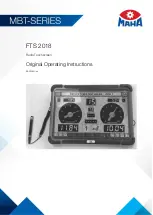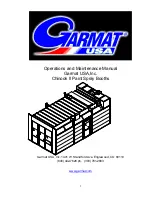
[7]
PULSE WIDTH
- This knob sets the base
pulse width of the
PULSE
output. When fully
counter clockwise the output will produce a
narrow 10% duty cycle pulse, when fully
clockwise it produces a pulse with a 90% duty
cycle. A square wave is produced with the
knob in the 12 o’clock position. The knob is
summed with the PWM input.
Inputs & Outputs
[A]
FM 1
- Linear or exponential frequency
modulation input. The behaviour is set by the
LIN/EXP
switch.
[B]
FM 2
- Exponential frequency modulation
input.
[C]
PWM
- This input is summed with the
PULSE
WIDTH
knob to set the width of the
PULSE
output. The range is +/- 5 V. Note that the
width can go down to 0% and up to 100% at
which point no wave will be produced.
[D]
1V/OCT
- Primary pitch voltage control input.
[E]
SYNC
- When the input waveform crosses
zero the oscillator is also reset to zero.
[F]
FLIP
- This input functions similarly to the
SYNC input except that instead of resetting
the oscillator to zero it flips the direction of travel.
[G]
SINE
- Sine wave output.
[H]
TRIANGLE
- Triangle wave output.
[I]
ZIG-ZAG
- Zig-zag wave output.
[J]
SAW
- Saw wave output.
[K]
PULSE
- Pulse wave output. The width of the pulse is controlled by a combination of the
PULSE WIDTH
knob and
PWM
input.
[L]
SUB
- Sub-oscillator output. Produces a 50% duty cycle square wave with a frequency one
octave below that of the primary oscillator.
Dixie II+ Manual
6


























